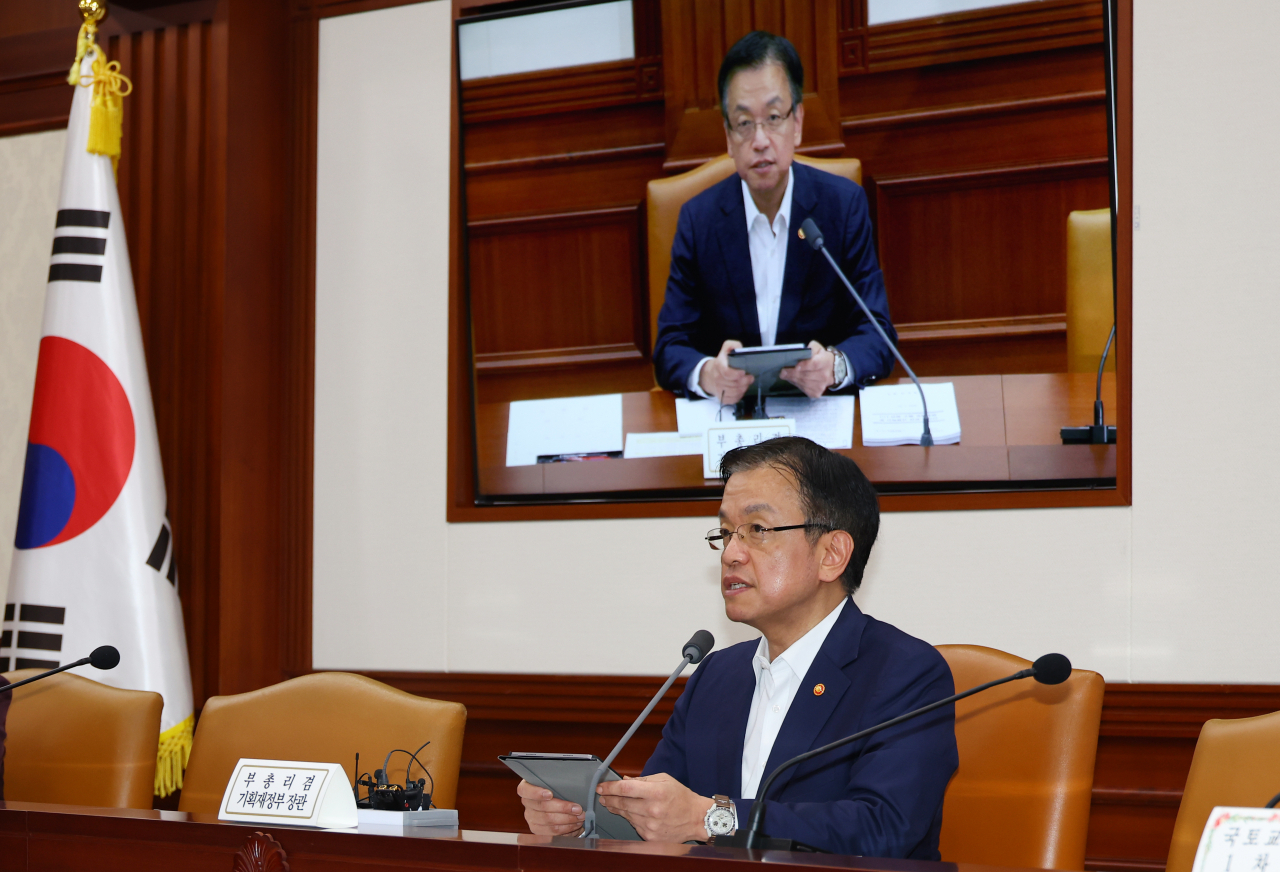
Finance Minister Choi Sang-mok addressed concerns about the rising volatility in South Korea's real estate market during a meeting with economy-related ministers in Seoul. He emphasized the government's commitment to implementing measures to increase housing supply, particularly in response to surging housing prices in Seoul and nearby regions. Minister Choi highlighted the need for enhanced market monitoring and accelerated supply plans, with a willingness to pursue further expansion if necessary. To address the mounting household debts, the government plans to gradually tighten lending regulations by enacting stressed debt service ratio (DSR) rules and other measures. Household loans extended by the country's top five commercial lenders saw a significant increase in June, leading to a total household loan amount of 708.5 trillion won as of end-June. Despite criticism, the government postponed the implementation of the tighter DSR rules by two months, citing the necessity to support small business owners and low-income earners. Additionally, President Yoon Suk Yeol announced a 25 trillion-won ($18 billion) support package for self-employed and micro business owners struggling with debts from the COVID-19 pandemic. In summary, Finance Minister Choi Sang-mok highlighted the government's commitment to addressing the real estate market's volatility by increasing housing supply, while also emphasizing plans to tighten lending regulations to tackle growing household debts. The government's efforts include measures to support small business owners and low-income earners, reflecting a broader focus on boosting domestic demand and the job market.
